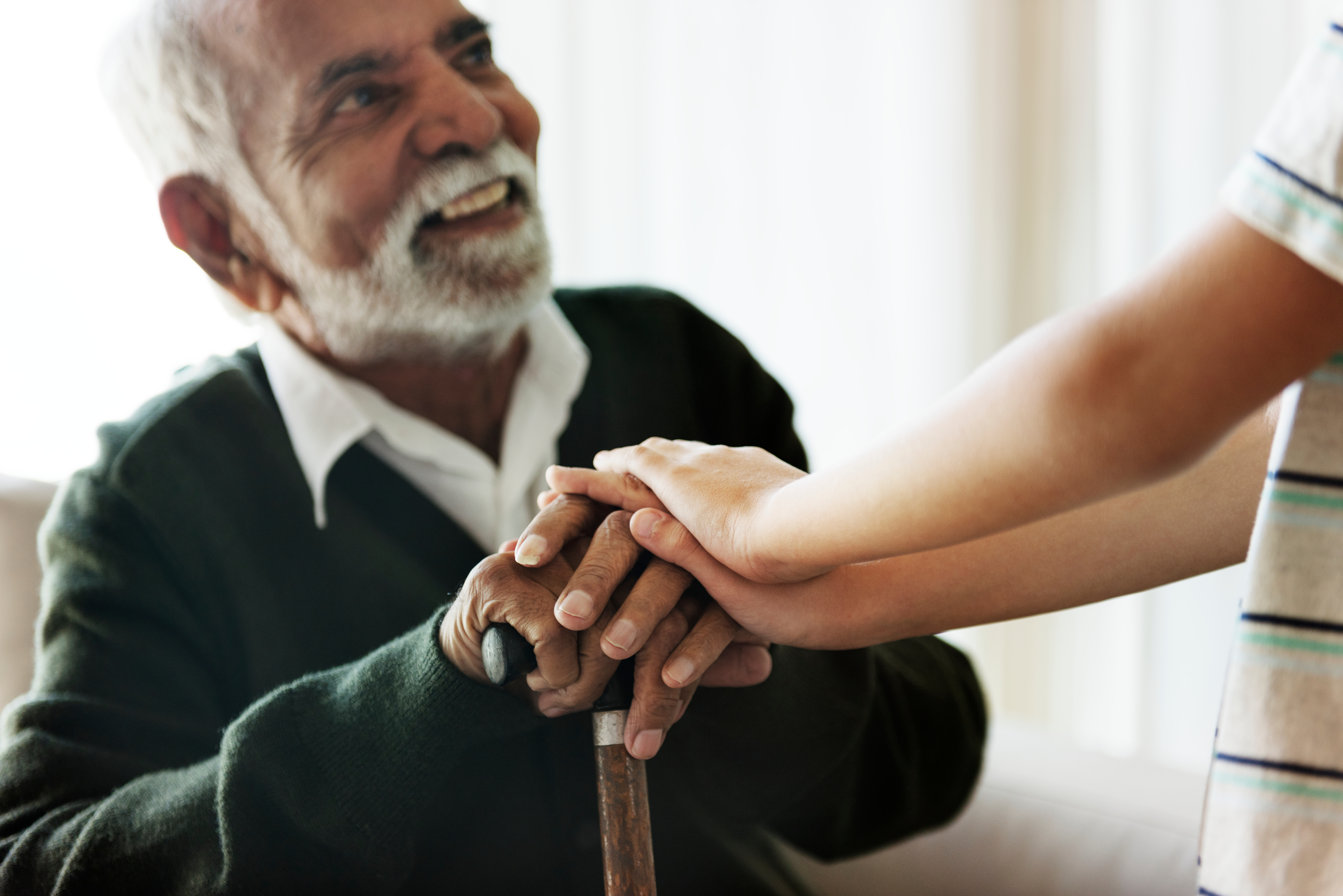

Back to top
Find more resources
About the Future with Your Loved Ones
Starting a Conversation
NEW STORY!
1. Sign up for emergency alerts: Visit CalAlerts.org to sign up for alerts in your area. Consider signing up for alerts in an older loved one’s area too.
time to talk with trusted children, grandchildren, or a caregiver about your future and what you envision for yourself?
As the saying goes, yesterday was the best time but today is the next best thing.
Starting the conversation about your future with younger loved ones can build their confidence, empower you, and bring peace of mind to everyone involved. It’s easier for loved ones to honor your wishes when they know what those wishes are. And connecting with other generations can be rewarding, even healing.
“I thought it would be scary, but it went surprisingly well,” says John Barrett, who started the conversation as a group around the table with his children and siblings, who seemed intrigued by this dinner topic.
Reflecting on subjects he frequently reads about in articles aimed at older adults, John says he tried to steer his family members to topics like social isolation, food security, fall prevention, and driving at night. He was surprised to learn his older sister’s main concern: “Who will take care of my cats?”
“That was eye-opening!” John says.
So — where to start?
2. Make a disaster-ready plan: Create a list of contact information you may need; decide where to meet if you’re separated from loved ones; practice your plan.
3. Pack a go bag: To grab when you need to leave quickly, including important documents and items for each family member, keys, wallet, identification, phone and charger, and medication.
4. Pack a stay box: Include basic supplies for when you can’t leave home, such as food that won’t spoil, water, a flashlight, trash bags, and medication – enough for three days.
5. Help friends and neighbors: Exchange contact information with your neighbors and plan how you might work together in an emergency.
• Water
• Non-perishable food
• Medication, especially prescriptions
• list of prescriptions
• Eyeglasses
• Copies of important documents
• List of important phone numbers
• Cash
• Flashlight and extra batteries
• FIRST AID KIT
• WHISTLE, TO SIGNAL FOR HELP
• MOIST TOWELETTES, GARBAGE BAGS, AND PLASTIC
TIES FOR PERSONAL SANITATION
• PERSONAL HYGIENE ITEMS
• MANUAL CAN OPENER
• CELL PHONE CHARGER
• BACKUP BATTERY
What should older adults put in a
go bag?
Trusted connections with family, friends, caregivers, and healthcare providers are crucial to ensure older adults’ and adults with disabilities’ needs are met during emergencies. Important considerations include:
As you get older, when is the best
5 Readiness Actions
• Emergency Preparedness Guide
• MyHazards
• CalAlerts
• Listos California
• Ready.gov
• Medicare: Care in an Emergency
Quick Links
Housing is a good ice breaker. Have you shared with younger loved ones your desire to live in your home as long as possible, or to downsize to a retirement community?
Staying in your home might mean you get some help, whether with meals, transportation, or around-the-house chores. Consider gauging the interest of younger loved ones in supporting you or explore the idea of hiring some help.
Maybe you’re tired of cooking, vacuuming, and taking care of the yard. Could you use help finding the right place or getting organized to move? Talk it out with family or trusted friends.
Where Will You Age?

Are You Prepared for Emergencies?
Here’s another idea for a conversation starter: Disaster prep.
If an emergency happens, would you need help evacuating? Who are your emergency contacts? Do your loved ones know your emergency plan? Do you need help preparing a go bag or stay kit? What about your pets? This is an opportunity to learn about your loved ones’ emergency plans too.
John’s advice: “Plan now rather than playing catch-up when a crisis, big or small, happens.”
Finances is another key topic. Start by determining who among family, friends, or others you can trust to invite into decisions and documents like a trust or power of attorney. If that isn’t an option, Area Agencies on Aging provide legal services for older Californians throughout the state.
Do your trusted loved ones know where to find your important documents, whether in a filing cabinet or online folder? Would they know where to locate your usernames and passwords?
Attorney Benjamin Rowe, whose clients include many older adults, says emotional connections between generations can grow stronger when older people draw dependable loved ones into their affairs.
“I see children who feel honored to be put in positions of trust,” Rowe says. “When they’re told they’re trusted, it certainly endears them, and they feel valued. These conversations create a sense of love and trust.”
In his chat with family, John realized that his will — created before his wife passed away, and before their granddaughter was born — was out of date. “My younger sister suggested a living trust as an option, so I need to explore these issues.”
And John’s son and younger sister both said they’d gladly take care of his older sister’s cats if that were ever needed. “So that crisis was solved,” John says.
Your younger loved ones are likely ready and willing to help you age with dignity and respect, and all generations benefit from the peace of mind that comes with thoughtful preparation. Consider how you might guide them to know and respect your wishes.
When you’ve had the conversation and have an idea of what’s needed to take the next steps, contact your local Area Agency on Aging to learn about the resources available in your area, such as legal services, meal programs, and disaster preparedness materials. California also offers a variety of resources for older adults, with information available in the Aging in California Resource Guide.
What About Financial Information?
